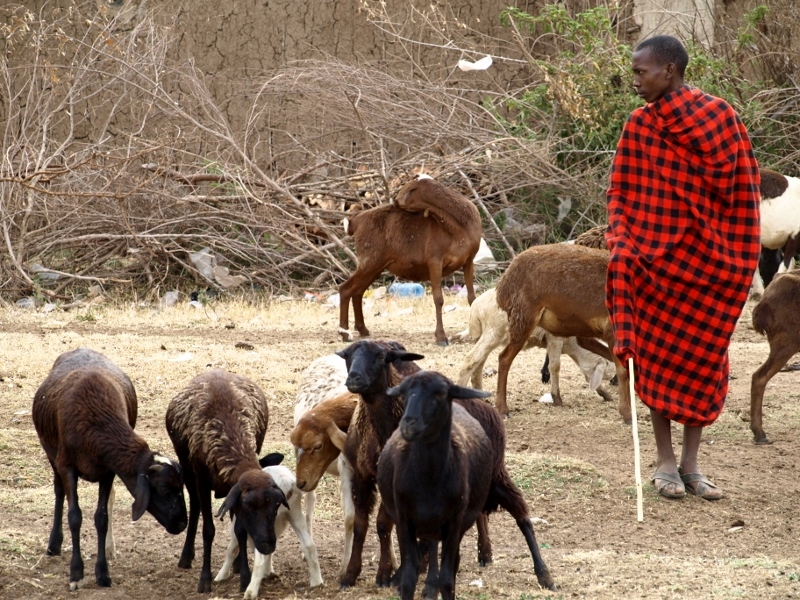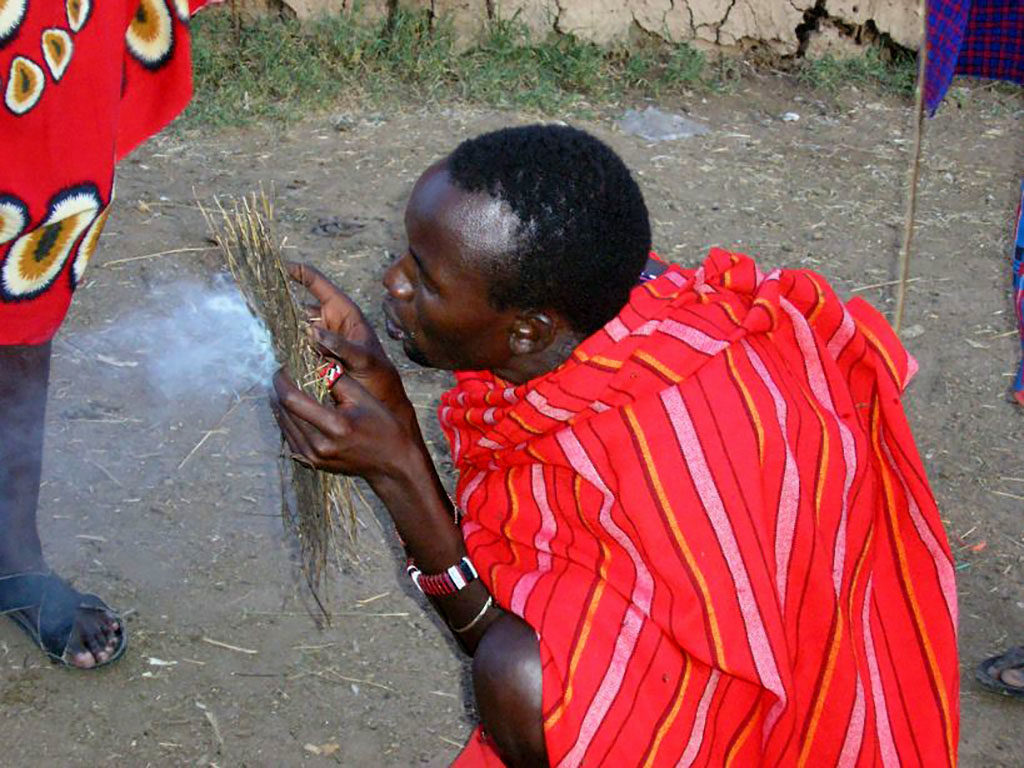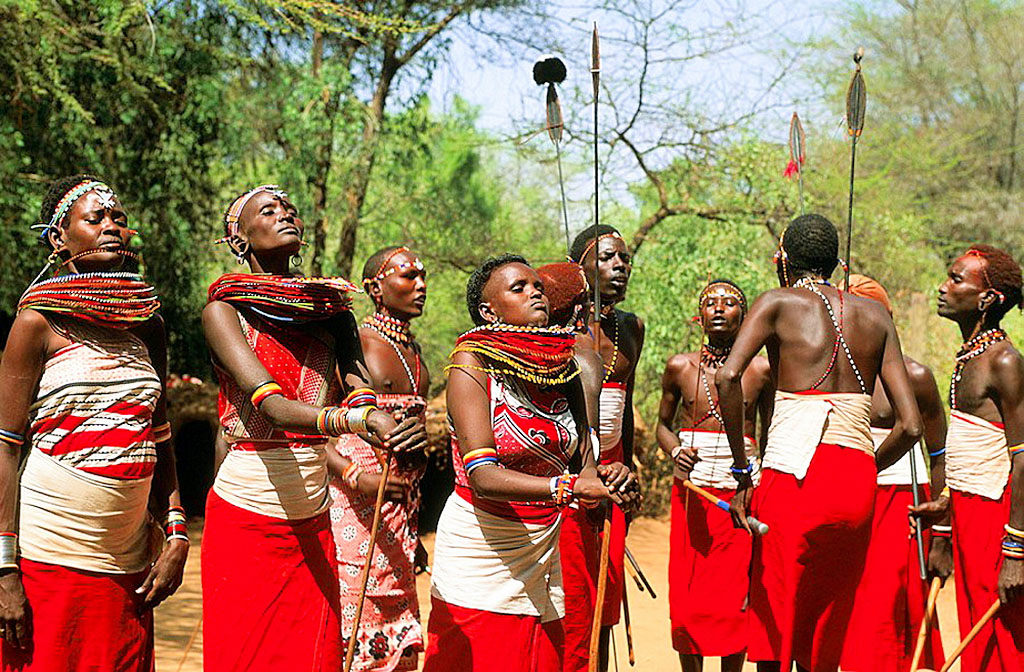Maasai herdsmen have a peculiar way of warming up. In Kenya, the temperature does not exceed the 28 °C/82.4 °F in winter and we find it weird when Jack our driver tells us that for locals, September is a cold month. Incidentally, this morning when we set out for a short ride in the outskirts of Nairobi Jack, is surprised seeing me carrying along several bottles of cold water I took out of the refrigerator for the way. While in the car, I hand him one but he tells me that he cannot drink cold water unless it is warm so he placed it next to the engine of the jeep to get warm, and only then he was able to drink it! Isn’t this weird? But there was another weird thing I observed later on that day. I witnessed how Maasai Herdsmen Warming up when out in fields!
Maasai Herdsmen Warming up
Almost every time we are out travelling on the outskirts of Nairobi we come across Maasai herdsmen. Depending on how close we are, we get off the car and approach them for a little chat and for one or two photos. Most of them are shy, but there are some who don’t like the idea of having tourists taking photos of them. I love seeing smiling faces, hearing the sound of nature, walking next to the animals while birds are flying over our heads. The Maasai live much the way their ancestors did centuries ago. Unconcerned about the passing of time, their lives are governed by the rising and setting of the sun and the ever-changing seasons. They struggle to survive in the harsh environment and rugged landscape. They travel great distances in search of green pastures and water sources for their cattle. With the help of his many children and wives, a Maasai man eventually hopes to accumulate a large herd that can number up to a thousand animals.
 Maasai Herdsmen Warming up
Maasai Herdsmen Warming up
 Maasai herdsmen pick dry leaves and cow dungs and make fire without matches or a lighter. They rub sticks, make the fire and sit down on the ground with their palms over the flames to warm up. As for the youngsters, Maasai children go to a school where they learn to respect their elders, and while their early years are carefree, as they grow older young girls start learning how to care for domestic duties and boys how to protect livestock. Parents are mostly the ones who pass on to their children knowledge of traditional medicines and instruct them about Maasai rituals and traditions. They touch every aspect of Maasai life but they also learn more from their school teachers. We have visited one such Maasai school and we came very close to the children and their wonderful teaches.
Maasai herdsmen pick dry leaves and cow dungs and make fire without matches or a lighter. They rub sticks, make the fire and sit down on the ground with their palms over the flames to warm up. As for the youngsters, Maasai children go to a school where they learn to respect their elders, and while their early years are carefree, as they grow older young girls start learning how to care for domestic duties and boys how to protect livestock. Parents are mostly the ones who pass on to their children knowledge of traditional medicines and instruct them about Maasai rituals and traditions. They touch every aspect of Maasai life but they also learn more from their school teachers. We have visited one such Maasai school and we came very close to the children and their wonderful teaches.













